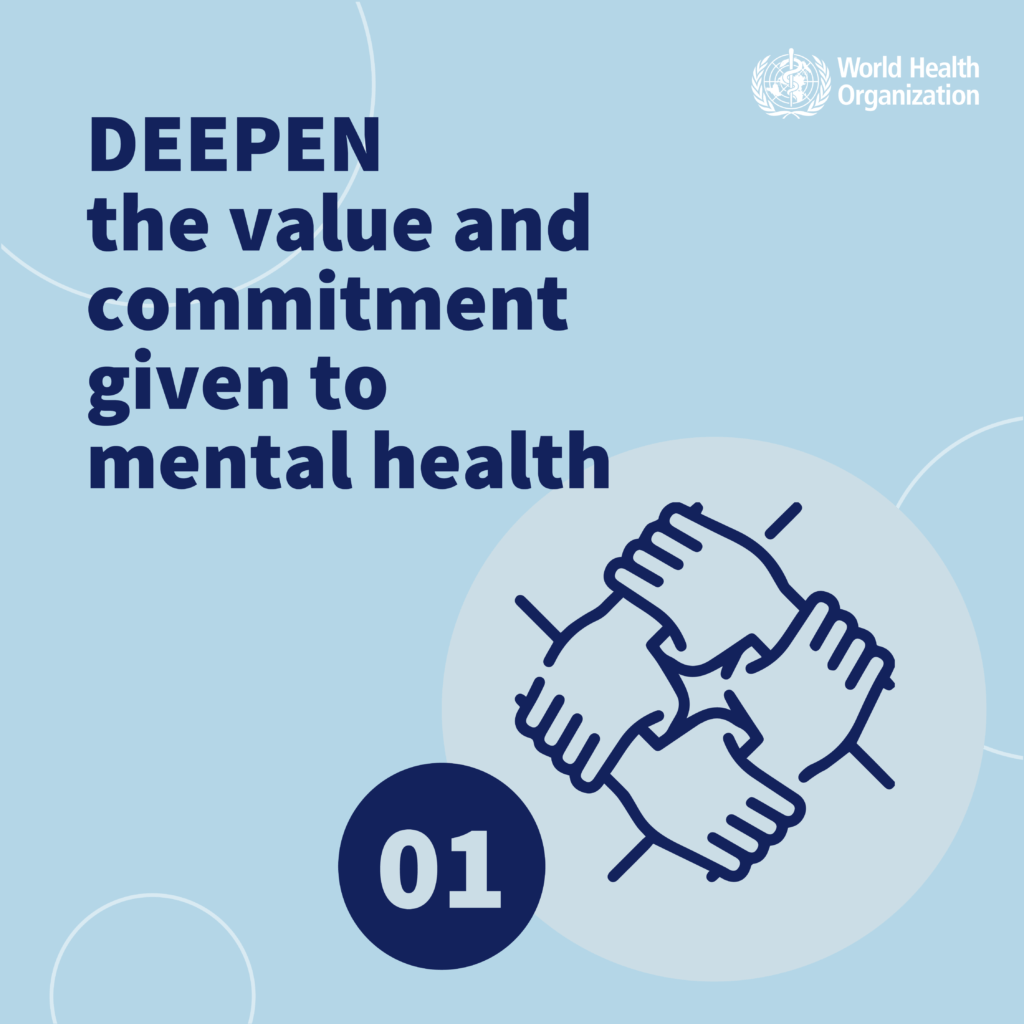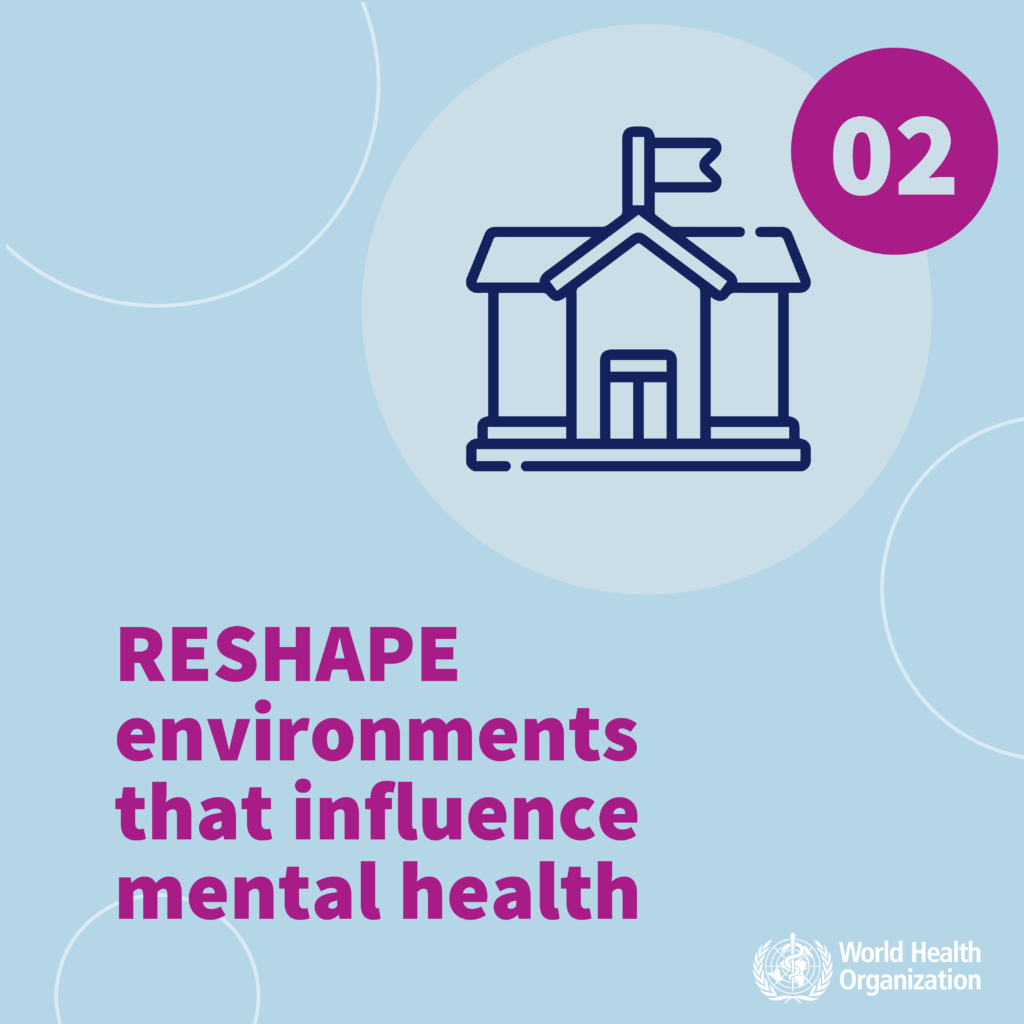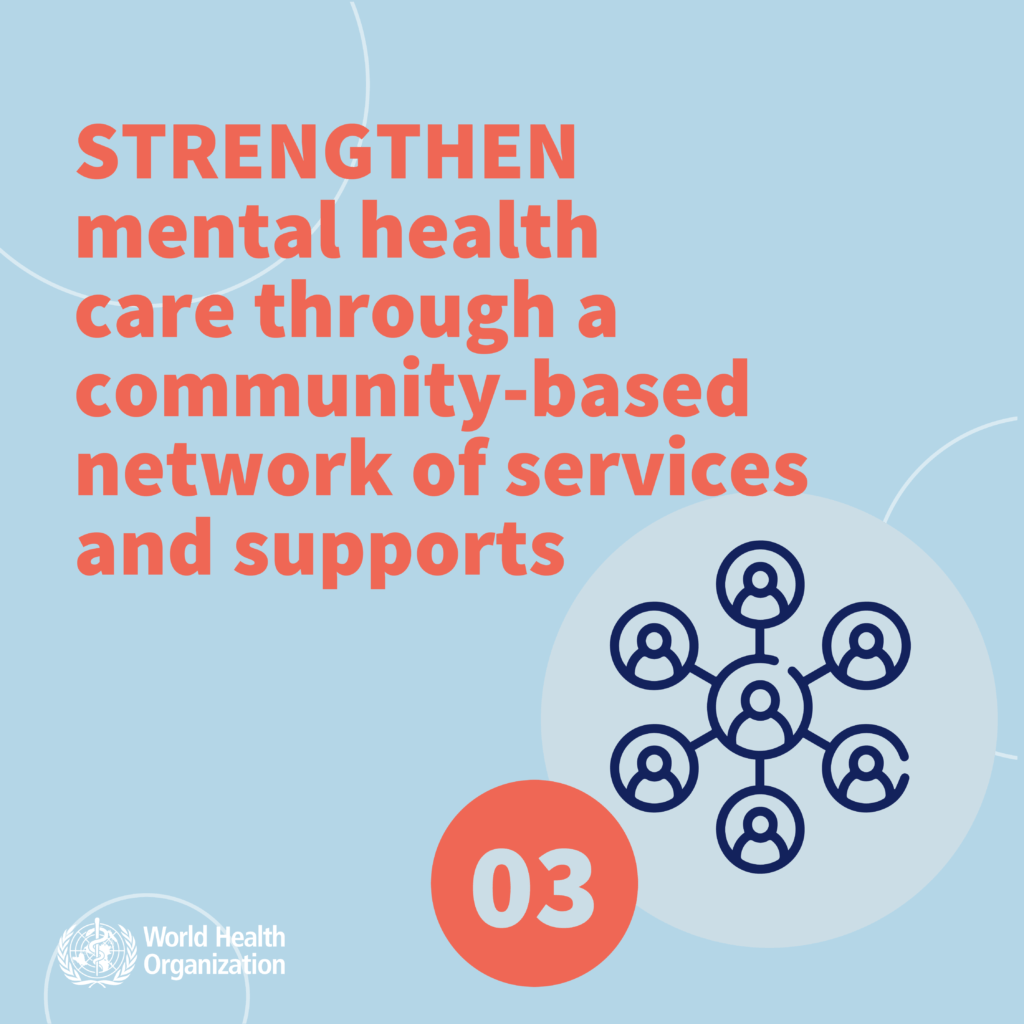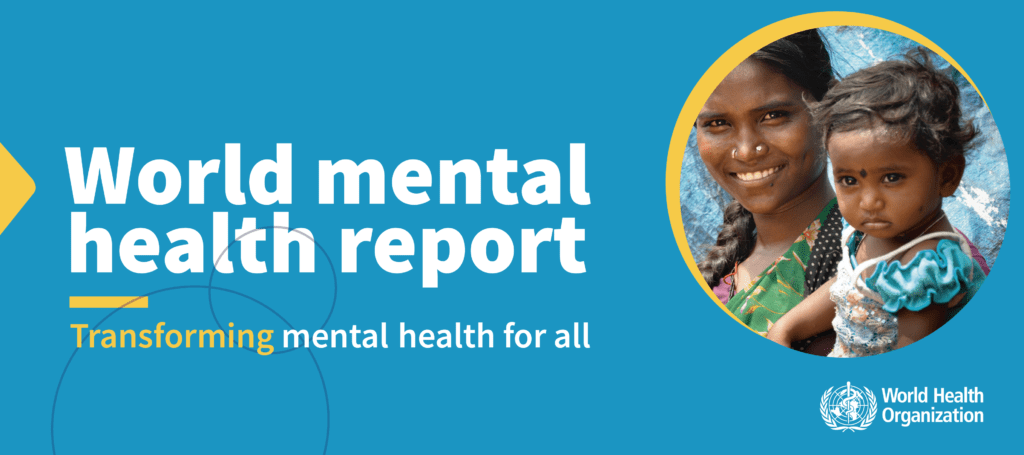by Anna Dé – WBP Policy and Advocacy Team Lead
On 17 June 2022, the World Health Organization released its largest review of world mental health since the turn of the century.
The detailed work provides a blueprint for governments, academics, health professionals, civil society and others with an ambition to support the world in transforming mental health.
In 2019, nearly a billion people – including 14% of the world’s adolescents – were living with a mental disorder.
Social and economic inequalities, public health emergencies, war, and the climate crisis are among the global, structural threats to mental health. Depression and anxiety went up by more than 25% in the first year of the pandemic alone.
The report makes several recommendations for action, which are grouped into three ‘paths to transformation’ that focus on shifting attitudes to mental health, addressing risks to mental health and strengthening systems of care for mental health.
They are:



“We are delighted from a WBP perspective to see that sex and gender differences have been strongly highlighted throughout this landmark WHO report on World mental health report: transforming mental health for all. Though dementia is not specifically addressed in this report, we welcome it for its comprehensive coverage of mental disorders overall. It is clear from the report that notable differences in mental health exist among men and women and across the life-course”, says Dr. Antonella Santuccione Chadha, CEO and Co-founder of the Women’s Brain Project (WBP).
From a WBP perspective, the following points of the report are of particular interest to us:
Impact of the COVID-19 pandemic
- Globally, women and young people have borne the brunt of the pandemic’s social and economic fallout.
Societal factors
- Women tend to be more socioeconomically disadvantaged than men and are also more likely to be exposed to intimate partner violence and sexual violence in the community, which are strong risk factors for a range of mental health conditions, especially PTSD.
- Analyses in Europe reveal that, on average, men and women living on the lowest incomes are twice as likely to report poor mental health compared with those with the highest incomes.
Depression
- Depressive and anxiety disorders are about 50% more common among women than men throughout the life-course, while men are more likely to have a substance use disorder. As depressive and anxiety disorders account for most cases of mental disorder, overall, slightly more women (13.5% or 508 million) than men (12.5% or 462 million) live with a mental disorder.
Pregnant women and women who have just given birth
- Mental disorders are common among pregnant women and women who have just given birth, often with severe impacts for both mothers and babies. Worldwide, more than 10% of pregnant women and women who have just given birth experience depression. In LMICs this figure is estimated to be substantially higher.
Attention-deficit/hyperactivity disorder in adolescence
- Attention-deficit/hyperactivity disorder and conduct disorders are particularly common in adolescence, especially among younger boys (4.6% and 4.5%, respectively in boys 10–14 years of age).
Anxiety in adolescence
- Anxiety is the most prevalent mental disorder among older adolescents (4.6%) and even more so among adolescent girls (5.5%). Anxiety and depressive disorders at this age may be associated with bullying victimization.
Eating disorders
- Eating disorders occur mainly among young people and, within this group, are more common among females (for example, 0.6% in women aged 20–24 years compared with 0.3% in men in the same age group)
Mental disorders in older adults
- Around 13% of adults aged 70 years and over lived with a mental disorder in 2019, mainly depressive and anxiety disorders. Sex differences in rates of mental disorders increase in this age category as 14.2% of women and 11.7% of men aged over 70 years are estimated to have a mental disorder. Prevalence estimates for schizophrenia are lower in adults aged over 70 years (0.2%) compared with adults under 70 years of age (0.3%), which in part may be explained by premature mortality.
- Notably, these estimates on mental disorders do not include dementia, which is a key public health concern that is often addressed by mental health or ageing policy and plans. An estimated 6.9% of adults aged 65 years and over live with dementia.
Suicide rates
- Suicide rates also vary between males and females. Globally, women are more likely to attempt suicide than men. And yet twice as many men die by suicide than women do. In high-income countries the male-to-female ratio for death by suicide is even higher, at three men to every woman.
- In both males and females, suicide is a major cause of death among young people (see also our panel on young suicide). In 2019, it was the third leading cause of death in 15–29-year-old females; and the fourth leading cause of death in males in this age group. Overall, it is the fourth leading cause of death among 15–29-year-olds and accounts for some 8% of all deaths in this age group. More than half (58%) of suicides happen before the age of 50 years. And suicide rates in people aged over 70 years are more than twice those of working age people.




